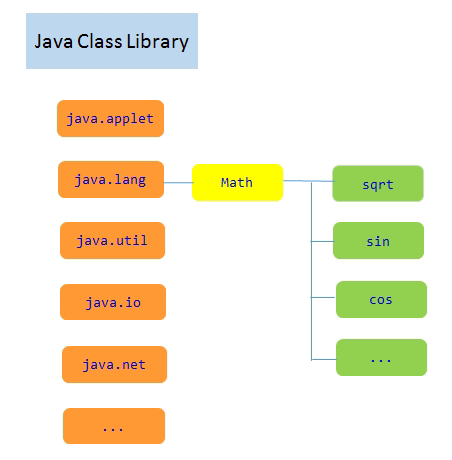**Java: Unraveling the Tapestry of Excellence**
In the vast landscape of programming languages, Java stands as a titan, weaving a tapestry of excellence that has endured for decades. Developed by Sun Microsystems in the mid-1990s, Java has evolved into one of the most influential and pervasive programming languages. Its versatility, portability, and robustness have positioned it as a go-to choice for a myriad of applications, from web development to mobile app creation.
*Portability: The Pillar of Java's Success*
One of Java's defining features is its "write once, run anywhere" philosophy. The Java Virtual Machine (JVM) allows Java programs to run on any device with a compatible JVM, irrespective of the underlying architecture. This portability has been instrumental in Java's widespread adoption, as developers can create applications that seamlessly function on various platforms without extensive modifications.
*Object-Oriented Prowess*
Java's commitment to object-oriented programming (OOP) principles contributes to its elegance and maintainability. Encapsulation, inheritance, and polymorphism form the foundation of Java's object-oriented design, fostering code organization and reusability. The language's strict adherence to OOP principles empowers developers to create modular and scalable solutions, enhancing the development process and facilitating collaborative coding efforts.
*Robustness and Reliability*
Java's emphasis on robustness is evident in its built-in exception handling mechanisms. By enforcing strict compile-time checking and runtime verification, Java minimizes the likelihood of runtime errors, resulting in more reliable and stable applications. This commitment to reliability has made Java a preferred choice for developing enterprise-level systems and mission-critical applications where downtime is not an option.
*Extensive Standard Library*
Java's rich standard library provides a comprehensive set of APIs covering everything from data structures and networking to graphical user interface (GUI) development. This extensive library simplifies development tasks, enabling programmers to focus on application logic rather than low-level implementations. The availability of well-documented and standardized libraries accelerates the development process and contributes to the language's reputation for productivity.
*Community Support and Ecosystem*
Java's longevity has fostered a robust and vibrant developer community. Online forums, documentation, and open-source projects contribute to a wealth of resources for Java developers. The ecosystem surrounding Java includes numerous frameworks, such as Spring and Hibernate, that streamline development processes and offer solutions for common challenges. The collective expertise and collaborative spirit of the Java community continue to propel the language forward.
*Security at the Core*
Security is paramount in today's interconnected world, and Java has been designed with this in mind. The language incorporates various security features, including the Java Security Manager, which allows developers to define access control policies for their applications. Additionally, Java's bytecode execution model adds a layer of security by running programs in a sandboxed environment, mitigating potential threats.
In conclusion, Java's enduring success as a programming language can be attributed to its portability, object-oriented principles, robustness, extensive standard library, supportive community, and commitment to security. Whether crafting enterprise-level applications or developing cutting-edge software, Java remains a cornerstone of the programming world, weaving a tapestry of excellence that continues to stand the test of time.
Structure
// Package Declaration (Optional)
package com.example.myprogram;
// Import Statements (Optional)
import java.util.*;
// Class Declaration
public class MyJavaProgram {
// Main Method (Entry Point)
public static void main(String[] args) {
// Variable Declarations and Initialization
int myNumber = 42;
String myString = "Hello, Java!";
// Print Output to Console
System.out.println(myString + " My favorite number is " + myNumber);
// Conditional Statement
if (myNumber > 0) {
System.out.println("The number is positive.");
} else if (myNumber < 0) {
System.out.println("The number is negative.");
} else {
System.out.println("The number is zero.");
}
// Loop (for example, a simple for loop)
for (int i = 0; i < 5; i++) {
System.out.println("Loop iteration: " + i);
}
// Method Declaration
int sum = addNumbers(3, 7);
System.out.println("Sum of numbers: " + sum);
}
// Method Definition
static int addNumbers(int a, int b) {
return a + b;
}
}
here's a simple Java example that takes user input, performs a calculation, and outputs the result
import java.util.Scanner;
public class Calculator {
public static void main(String[] args) {
// Create a Scanner object to read user input
Scanner scanner = new Scanner(System.in);
// Prompt the user for input
System.out.print("Enter the first number: ");
double num1 = scanner.nextDouble();
System.out.print("Enter the second number: ");
double num2 = scanner.nextDouble();
// Close the scanner to avoid resource leak
scanner.close();
// Perform a simple calculation (addition in this case)
double sum = addNumbers(num1, num2);
// Display the result
System.out.println("The sum of " + num1 + " and " + num2 + " is: " + sum);
}
// Method to add two numbers
static double addNumbers(double a, double b) {
return a + b;
}
}











